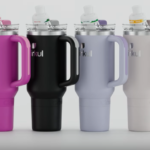The world of health and fitness has seen a lot of progress in recent years. With the rise of technology, an ever-increasing number of people are turning to diet and exercise to improve their overall well-being. This has led to the emergence of two popular products on the market – Alani Nu and Celsius. Both brands are committed to providing customers with high-quality supplements and drinks that can help them reach their fitness goals. So what’s the difference between Alani Nu Vs Celsius? Let’s find out!
About Alani Nu Energy Drink

Alani Nu Energy Drink Not only does it boost energy, but it also tastes great and is made with quality ingredients.
Alani Nu Energy Drink comes in various flavors, including Hawaiian Shaved Ice, Mimosa, and Cosmic Stardust. I’ve tried them all and can attest to their deliciousness. They’re not overly sweet or syrupy like some other energy drinks, and they don’t have that artificial aftertaste that can be off-putting. Instead, they have a refreshing and fruity flavor for a mid-day pick-me-up.
But taste isn’t the only thing that matters regarding energy drinks. What’s inside counts too, and Alani Nu Energy Drink is made with quality ingredients that you can feel good about putting into your body. Each can contain 200mg of caffeine, about the same as a cup of coffee. It also has L-Theanine, an amino acid that can help improve focus and reduce anxiety. And unlike other energy drinks loaded with sugar, Alani Nu Energy Drink is sugar-free and only contains 10 calories per can.
Another thing that I appreciate about Alani Nu Energy Drink is the company’s commitment to transparency. They provide a full list of ingredients on their website and information about where they source their ingredients and how they’re processed. This level of openness is refreshing in an industry often shrouded in mystery.
Alani Nu Energy Drink Ingredients

One thing that stands out to me is the presence of taurine, an amino acid that has been shown to improve athletic performance and cognitive function. Combine that with caffeine and L-theanine, and you have a potent combination that can help you stay focused and energized for hours.
But it’s not just about the caffeine. Alani Nu’s energy drink also contains Panax ginseng root extract, which has been used for centuries in traditional medicine to improve mental and physical performance. And with added vitamins like niacinamide, biotin, and cyanocobalamin (Vitamin B-12), this drink boosts your energy levels.
As for the taste, I have to say that I’m impressed. The natural flavor is subtle and not too sweet, a welcome change from some overly sugary energy drinks. And with a touch of vegetable juice for color, you can feel good about what you’re putting into your body.
Of course, it’s worth noting that this drink does contain some preservatives and sweeteners like sucralose and acesulfame potassium. But in my opinion, the benefits of the other ingredients far outweigh any potential downsides.
Overall, I highly recommend Alani Nu’s energy drink to anyone looking for a clean, effective way to boost their energy levels. Its powerful ingredients and refreshing taste make it an excellent choice for anyone who wants to stay focused and productive throughout the day.
About Celsius Energy Drink
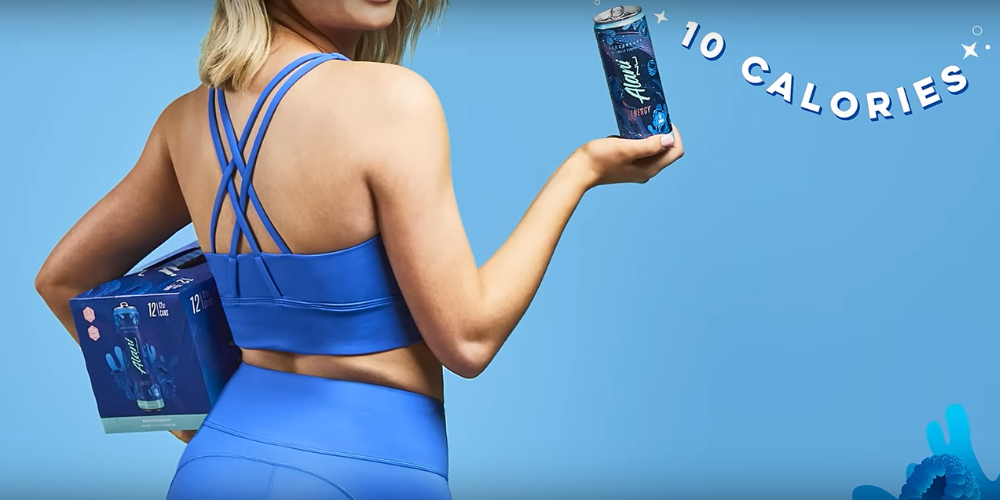
I appreciate that Celsius contains no artificial preservatives, flavors, or colors. This is a major selling point for me as someone who values clean and natural ingredients. Additionally, Celsius uses a proprietary blend of ingredients, including green tea extract, ginger root, guarana seed extract, and more, which work together to provide a sustained energy boost without the usual crash you get with other energy drinks.
What sets Celsius apart from other energy drinks is its focus on promoting weight loss and a healthy lifestyle. The combination of green tea extract and EGCG (epigallocatechin gallate) has been shown to increase metabolism and burn fat, making Celsius an excellent option for those looking to shed some pounds. Plus, with only 10 calories per can, it’s a guilt-free option for those watching their calorie intake.
But let’s get down to the taste. With flavors ranging from sparkling orange to watermelon berry, Celsius offers a refreshing and enjoyable taste that doesn’t leave a lingering artificial aftertaste like other energy drinks. Plus, the carbonation adds a satisfying fizz that gives you an extra energy kick.
Celsius Energy Drink Ingredients
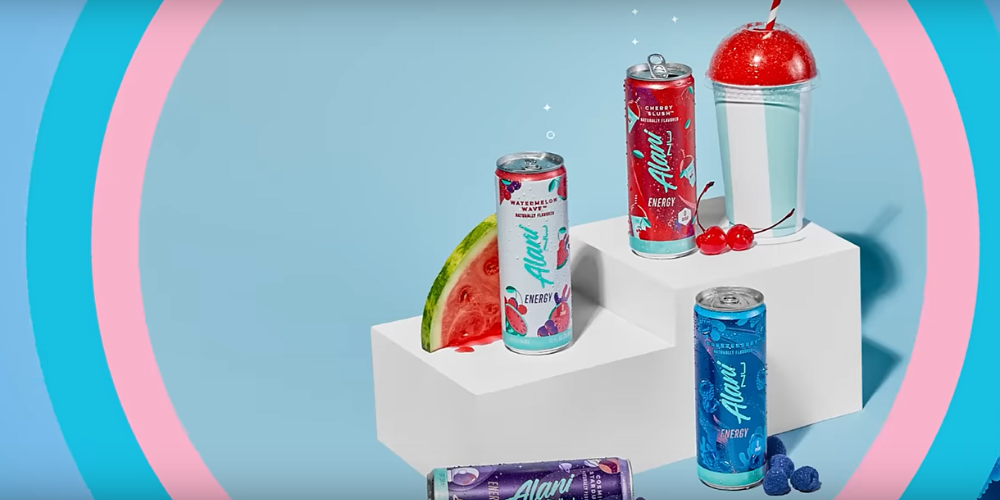
One of the most common energy drink ingredients is Taurine. Taurine is an amino acid naturally produced by the body but is also found in many energy drinks. It is believed to help enhance athletic performance and improve mental focus.
Another ingredient that is often found in energy drinks is Guarana Extract. This extract is derived from the seeds of the guarana plant, which is native to South America. Guarana contains caffeine, a stimulant that can help increase energy levels and improve mental alertness.
Caffeine is another common energy drink ingredient that is often included in the form of caffeine anhydrous. This dehydrated form of caffeine is believed to be more potent than other forms. Caffeine is a powerful stimulant that can help increase energy levels, improve mental focus, and even enhance physical performance.
Glucuronolactone is another ingredient that is commonly found in energy drinks. This compound is believed to help improve mental clarity and reduce fatigue. It is also thought to help detoxify the body and improve overall health.
Ginger extract is another ingredient that is often included in energy drinks. Ginger has been used for centuries for its medicinal properties and is believed to help reduce inflammation, improve digestion, and boost immune function.
Finally, green tea leaf extract is often included in energy drinks for its high content of EGCG, a powerful antioxidant. EGCG is believed to help improve brain function, reduce inflammation, and promote weight loss.
In addition to these ingredients, energy drinks typically contain carbonated filtered water, citric acid, vegetable juice for color, sucralose, and natural flavorings. These ingredients are used to give the drinks their characteristic taste and appearance.
In conclusion, the ingredients found in Celsius Energy Drink are common to many other energy drinks on the market. While these ingredients can provide a quick boost of energy and mental focus, they should be consumed in moderation and with caution.
Alani Nu Vs Celsius: What’re The Main Similarities?
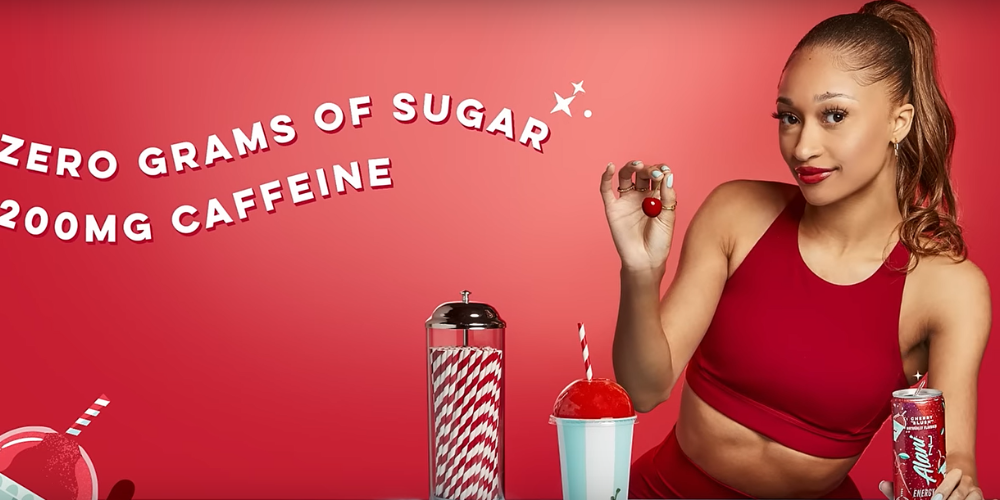
When comparing Alani Nu and Celsius, there are some significant similarities.
Both energy drinks contain a similar blend of caffeine, taurine, and B vitamins, common ingredients in many energy drinks. Additionally, both drinks contain 200mg of caffeine per can, offering the system a quick and easy burst of energy. These energy drinks are ideal for busy people who need a quick pick-me-up to help them get through their hectic day.
Another similarity is that Alani Nu and Celsius energy drinks contain no sugar or artificial sweeteners. Instead, Alani Nu is sweetened with natural flavors and stevia, while Celsius uses sucralose. The FDA approves these sweeteners, and is ideal for people watching their sugar levels.
Finally, both energy drinks are available in cans and are suitable for people who are on the go and need a quick energy boost.
Overall, the main similarities between Alani Nu and Celsius are their caffeine content, ingredients, and sugar-free nature.
What Are The Primary Differences Between Alani Nu Vs Celsius?

The key differences between the two lie in their ingredients, caffeine content, flavors, availability, and pricing.
- Alani Nu uses natural flavors and sweeteners, while Celsius uses artificial sweeteners, containing 200mg of caffeine per serving.
- Alani Nu contains electrolytes, while Celsius contains additional ingredients like ginger root extract, green tea extract, and guarana seed extract.
- Alani Nu is sold mainly in specialty health and fitness stores or online, while Celsius is more widely available in gas stations, convenience stores, and supermarkets.
- Alani Nu tends to be more expensive than Celsius, with a 12-pack of Alani Nu costing around $29 and Celsius costing around $20.
It is essential to be mindful of the potential side effects of energy drinks and limit caffeine intake to no more than 400mg per day. Ultimately, the choice between Alani Nu and Celsius comes down to personal preference.
Flavors
I think Alani Nu has a wider range of flavors than Celsius, which mainly focuses on fruit-based drinks. Alani Nu offers various sweet and distinct-tasting flavors that do not leave any unpleasant aftertaste. On the other hand, Celsius provides refreshing light flavors without any overpowering taste commonly found in other energy drinks.
Alani Nu uses natural flavors and stevia as sweeteners, while Celsius uses only sucralose. Both energy drinks have additional ingredients such as taurine, B vitamins, and electrolytes. Alani Nu has more electrolyte content, such as sodium and potassium, compared to Celsius.
How Much Sugar Does Each Serving Of Alani Nu And Celsius Contain?
Both Alani Nu and Celsius offer zero-sugar options. A 12-ounce can of Alani Nu energy drink contains no sugar or artificial sweeteners. On the other hand, a can of Celsius also contains zero sugar but is sweetened with sucralose, an artificial sweetener. This makes both drinks a great option for those looking to avoid added sugars in their diet.
It’s important to note that while Alani Nu contains no sugar, it does have six grams of carbohydrates per 12-ounce can. This may be a concern for those on a low-carb or keto diet. In comparison, Celsius offers a zero-carb option.
If you’re looking for a low-sugar energy drink, Alani Nu and Celsius offer options that suit different dietary preferences. Alani Nu offers a no-sugar, low-carb option, while Celsius provides a zero-sugar, zero-carb option sweetened with an artificial sweetener. It’s crucial to look at all the nutritional information before deciding which energy drink to consume.
Caffeine Content
Alani Nu contains the same amount of caffeine as Celsius, containing 200mg per can. It’s worth noting that a single can of either drink contains as much caffeine as a cup of coffee, so it’s important to monitor your caffeine intake throughout the day. Some people are more sensitive to caffeine, so it’s always best to start with a small amount and work your way up if necessary.
Calories
Alani Nu is a better choice if you’re looking for a low-calorie energy drink since it contains natural sweeteners and fewer calories than Celsius.
Sodium
Celsius has a low amount of sodium, making it a better option for those watching their sodium intake. In comparison, Alani Nu contains 200 milligrams of sodium per 12-ounce can, which is higher than Celsius.
Consuming excessive sodium may increase the risk of high blood pressure, heart disease, and stroke. Therefore, Celsius may be a better choice for individuals with specific dietary requirements or concerns about sodium intake over Alani Nu.
Alani Nu Vs Celsius: Price

Celsius is generally priced lower than Alani Nu, with each can being sold for $2.19 compared to Alani Nu’s slightly higher price point. Celsius may be the better option for those looking to save money.
How Does The Carbonation Level Compare Between The Two?
While Celsius has a slightly carbonated taste that some people find enjoyable, Alani Nu is lightly carbonated, with a refreshing flavor and not too overwhelming.
Is Alani Nu Healthier Than Celsius?
Regarding nutrition, Alani Nu has fewer calories, more vitamins, and minerals than Celsius, making it a healthier option.
Additionally, Alani Nu uses natural flavors and stevia as sweeteners, while Celsius only uses artificial sweeteners like sucralose, leading to potential negative health effects. On the other hand, Celsius contains more caffeine per serving and additional ingredients like ginger root extract, green tea extract, and guarana seed extract.
Both energy drinks can cause adverse side effects in people sensitive to caffeine, and limiting caffeine intake to no more than 400mg per day is recommended.
What Is The Risk Of Celsius Energy Drink?
First and foremost, it is important to note that the CDC has warned about the potential risk of heart complications and other issues related to consuming highly caffeinated beverages, including Celsius energy drinks.
The brand’s MetaPlus Proprietary Blend contains several active ingredients, such as caffeine, taurine, and guarana, intended to increase energy. Still, a combination of certain ingredients poses a significant risk, as studies have shown. Taurine, when combined with caffeine, can negatively affect the adolescent brain.
Moreover, Celsius contains three inactive ingredients that should be avoided. For example, artificial sweeteners such as sucralose have been found to cause whole-body inflammatory reactions in some individuals. Citric acid can be derived from a fungus called Aspergillus niger, which may cause liver injury when used at high doses.
Finally, while Celsius contains vitamins and minerals, taking large doses of added vitamins and minerals will likely not affect energy levels in those without a vitamin or mineral deficiency. Additionally, this practice seems illogical and potentially harmful.
In conclusion, while consuming Celsius energy drinks may not be acutely harmful, it is not a healthy alternative to traditional energy drinks due to the combination of risky ingredient synergies, added vitamins and minerals, and inactive ingredients. It is also important to note that reducing caffeine intake and staying from highly caffeinated drinks such as Celsius regularly is necessary to maintain positive heart health.
What Is The Risk Of Alani Nu Energy Drink?
Based on factual data, it’s difficult to determine whether Alani Nu Energy Drink poses a significant risk to consumers. While the drink claims to enhance physical performance and increase energy, it contains 200mg of caffeine, equivalent to two cups of brewed coffee. That amount could be too high for some people with low caffeine tolerance and may result in agitation, risk-taking behaviors, increased heart rate, and palpitations in their hands.
The FDA does not regulate Alani Nu since it’s a dietary supplement, so consumers should discuss its use with a medical professional before taking it. Additionally, repeated consumption of Alani Nu or other energy drinks can weaken the nerves or make the consumer less active.
In conclusion, moderation is key when consuming energy drinks like Alani Nu. Considering the potential risks and balancing those with the benefits is essential.
Alternative to Alani Nu and Celsius
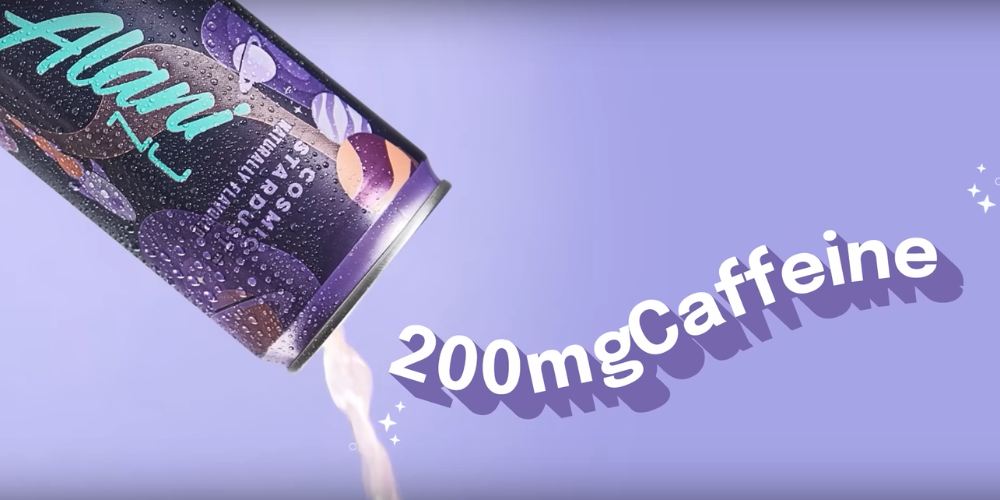
While Alani Nu and Celsius are popular choices, several other alternatives on the market are worth considering. Here are a few options that I’ve tried and would recommend:
- Bang Energy: Like Alani Nu, Bang Energy is marketed towards fitness enthusiasts and contains zero sugar. It also boasts 300mg of caffeine per can, making it a great option for those who need a serious boost. Bang comes in various unique flavors, such as Cotton Candy and Sour Heads.
- REIZE Energy: REIZE is a powdered energy drink you mix with water. One of the benefits of REIZE is that it’s incredibly portable, as the powder packets are small and easy to take on the go. It contains 50mg of caffeine per serving and taurine and B vitamins. REIZE also offers a subscription service, saving you money in the long run.
- Monster Energy Zero Ultra: If you’re looking for a more mainstream option, Monster Energy Zero Ultra is a great choice. It contains zero sugar and no calories and has a refreshing taste. It also contains 140mg of caffeine per can, taurine, and B vitamins.
- Red Bull Energy Drink: Red Bull is another classic energy drink that has been around for years. While it does contain sugar, there is also a sugar-free option available. Red Bull contains 80mg of caffeine per can, taurine, and B vitamins. It also has a distinctive, tangy taste that many people enjoy.
Overall, plenty of alternatives to Alani Nu and Celsius offer a range of benefits. Whether you’re looking for a high-caffeine option or something more low-key, an energy drink out there will work.
Alani Nu Vs Celsius – FAQs
Is Alani Nu A Healthy Energy Drink?
Containing only 10 calories and 200 milligrams of caffeine in a 12-ounce can, Alani Nu has become a popular option for people wanting to consume a healthier energy drink. It is also gluten-free, vegan-friendly, and contains no sugar, making it a great low-carb alternative.
Alani Nu is formulated with essential nutrients and B vitamins, including Niacin, Pantothenic Acid, vitamin B6, and vitamin B12. This reinforces its organic and natural claims, free of synthetic colors and tastes. Alani Nu energy drink can deliver a quick and subtle energy boost when taken responsibly before starting any activity.
While it is suggested to drink Alani Nu in moderation, consuming over 400 milligrams of caffeine a day might lead to negative side effects such as insomnia, dehydration, headaches, rapid heartbeat, anxiety, and even dependency. It is recommended to start with half a can to evaluate the effect on your body and to avoid consuming more than one can per day.
Alani Nu is not FDA-approved as it falls under dietary supplements. However, it is manufactured according to the guidelines set by the FDA for dietary supplement production.
Overall, given its ingredients, Alani Nu has been deemed a healthier option than most of its energy drink market competitors. While Alani Nu may not be as good as fruits and veggies, it still provides a good source of nutrients when taken in moderation.
Why Is Celsius Banned In Ncaa?
Celsius energy drinks are now banned under the 2021-2022 NCAA Banned Substance Policy. Despite popular belief, the ban is not due to the caffeine content, comparable to two regular-sized cups of coffee, but rather the presence of guarana extract.
Guarana is a stimulant that can enhance athletic performance, potentially giving athletes a competitive advantage over their peers. The NCAA bans this ingredient because it provides a short-term energy boost that can lead to adverse side effects such as heart palpitations, energy crashes, insomnia, and anxiety.
Student-athletes often turn to caffeine and guarana to cope with their busy schedules as full-time students with athletic duties. However, it’s important to note that caffeine can be dangerous in high doses, especially for athletes whose sports require high levels of cardiovascular activity. The stimulating effects of caffeine on the nervous system can have detrimental effects on an athlete’s heart health, especially if they are routinely misused or consumed in excess. Because of this, caffeine is now a restricted substance under NCAA regulations and is tested for in random drug testing of student-athletes.
Why Is Celsius Not Fda Approved?
Energy drink Celsius is actually FDA-approved. In fact, it is not only FDA-approved, but it is also FDA-compliant, FDA-registered, and FDA-certified. The FDA is responsible for protecting our health and ensuring the safety of our food supply, so Celsius being FDA-approved is a good sign.
However, there have been some controversies surrounding Celsius despite its FDA approval. For example, there have been false advertising claims made against Celsius. The singer Flo Rida sued Celsius for stating “no preservatives” on its label despite the drink containing citric acid. A jury awarded Flo Rida $82.6 million in damages after determining that an energy drink manufacturer breached his contract.
Moreover, Celsius contains guarana seed extract, which is not FDA-approved. This ingredient has led to Celsius being outlawed in college sports due to its potential negative health effects. At typical doses, the caffeine in guarana can cause insomnia, nervousness, stomach irritation, nausea, vomiting, increased heart rate and blood pressure, rapid breathing, tremors, and other side effects.
In conclusion, while Celsius is indeed FDA-approved, it is not without controversy. The false advertising claims against the brand and the presence of an unapproved ingredient like guarana seed extract have raised concerns.
Conclusion
In conclusion, Alani Nu and Celsius are great supplements that can help you improve your athletic performance. However, they differ in how they deliver their energy and taste. Ultimately, the choice between Alani Nu vs Celsius comes down to personal preference and what works best for your body.
References:

